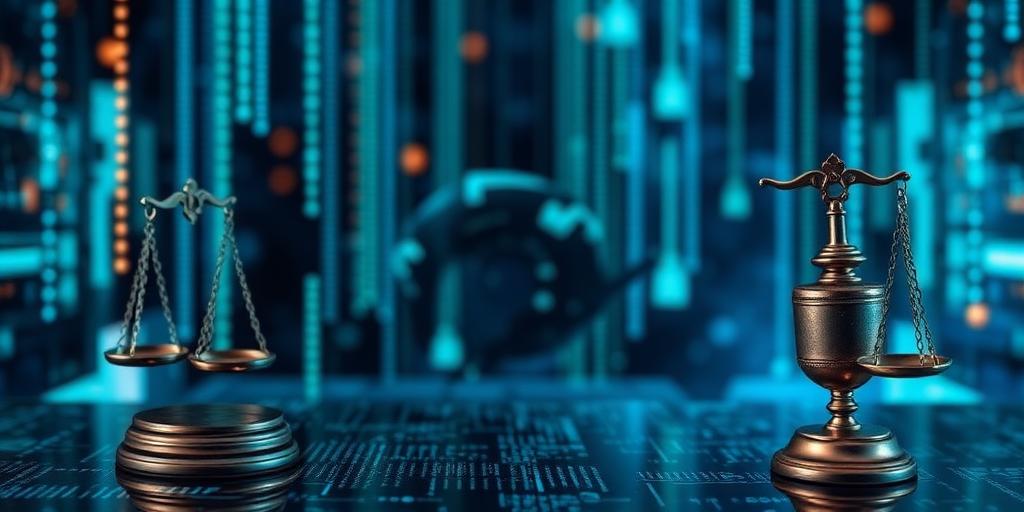Data Breaches as Digital Rights Violations: Seeking Justice and Compensation
In an increasingly digital world, our personal data has become a valuable commodity. We entrust our information to various organizations, from social media platforms to financial institutions, with the expectation that it will be protected. However, data breaches are becoming increasingly common, and the consequences can be devastating. This article explores the concept of data breaches as violations of digital rights, examining the avenues for seeking justice and compensation when these rights are infringed.
Understanding Digital Rights
Digital rights are the human rights and fundamental freedoms that people are entitled to when using the Internet and digital technologies. These rights include:
- The right to privacy: The right to control how your personal data is collected, used, and shared.
- The right to freedom of expression: The right to express your opinions and ideas online without fear of censorship or reprisal.
- The right to access information: The right to access a wide range of information online, including news, education, and cultural content.
- The right to security: The right to be protected from online threats, such as hacking, malware, and identity theft.
When a data breach occurs, it can violate several of these digital rights, particularly the right to privacy and security. The unauthorized access and disclosure of personal data can lead to identity theft, financial loss, reputational damage, and emotional distress.
Data Breaches as Violations of Digital Rights
A data breach is a security incident in which sensitive, protected, or confidential data is copied, transmitted, viewed, stolen, or used by an individual unauthorized to do so. Data breaches can occur due to various reasons, including:
- Hacking: Cybercriminals may use various techniques to gain unauthorized access to systems and data.
- Malware: Malicious software can be used to steal data or disrupt systems.
- Insider threats: Employees or contractors may intentionally or unintentionally compromise data security.
- Human error: Mistakes, such as misconfigured systems or accidental disclosure, can lead to data breaches.
When a data breach occurs, the organization responsible for protecting the data has failed to uphold its duty of care. This failure can be considered a violation of digital rights, as individuals have a right to expect that their personal data will be handled securely and responsibly.
Seeking Justice and Compensation
If you have been affected by a data breach, you may be entitled to seek justice and compensation. The available legal avenues vary depending on the jurisdiction and the specific circumstances of the breach. However, some common options include:
- Filing a complaint with a data protection authority: Most countries have a data protection authority responsible for enforcing data protection laws. You can file a complaint with the authority if you believe your data has been breached.
- Bringing a civil lawsuit: You may be able to bring a civil lawsuit against the organization responsible for the data breach, seeking compensation for damages such as financial loss, emotional distress, and reputational damage.
- Participating in a class action lawsuit: If many individuals have been affected by the same data breach, they may be able to join a class action lawsuit to collectively seek compensation.
To successfully pursue a claim for justice and compensation, it is essential to gather evidence of the data breach and its impact on you. This evidence may include:
- Notification from the organization: If the organization responsible for the breach has notified you, keep a copy of the notification.
- Credit reports: Check your credit reports for any signs of identity theft or fraudulent activity.
- Financial statements: Review your financial statements for any unauthorized transactions.
- Medical records: Monitor your medical records for any signs of identity theft or misuse of your personal information.
Preventing Data Breaches
While it is essential to seek justice and compensation after a data breach, prevention is always better than cure. Individuals and organizations can take several steps to prevent data breaches, including:
- Using strong passwords: Use strong, unique passwords for all online accounts.
- Enabling two-factor authentication: Enable two-factor authentication whenever available to add an extra layer of security.
- Being cautious of phishing scams: Be wary of suspicious emails or links that ask for personal information.
- Keeping software up to date: Regularly update your software to patch security vulnerabilities.
- Implementing robust security measures: Organizations should implement robust security measures to protect data, such as firewalls, intrusion detection systems, and data encryption.
Conclusion
Data breaches are a serious threat to digital rights, with the potential to cause significant harm to individuals. By understanding digital rights, recognizing data breaches as violations of these rights, and taking steps to seek justice and compensation, we can hold organizations accountable for protecting our personal data. Furthermore, by implementing preventative measures, we can reduce the risk of data breaches and safeguard our digital rights in an increasingly interconnected world.









